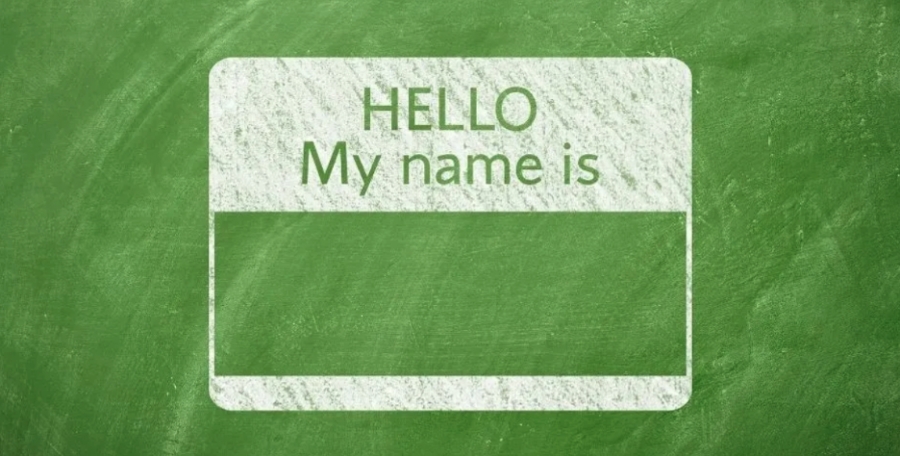Additionally, a lot of assumptions are made about others when names are the only information we have about a person. Human brains tend to conjure up traits, personalities, expectations, and more, even before we meet the person attached to the name. This practice can often frame how we perceive and engage with them; creating preconceived notions that can determine interactions and outcomes.
Children and young people may not always be in a position to correct the adult when their names are mispronounced, shortened, spelled incorrectly, or changed. Sometimes, adults are not always able to correct other adults due to power dynamics. As professionals, this is one area we can fix by modeling and demonstrating vulnerability through self-correction and practice. As the older Nike slogan stated, "Just Do It."
Using a child's name with a joyful and gentle tone can support positive identity development, model positive communication, and create welcoming spaces for everyone. Each of us gets to decide how we want to be remembered and taking the time to learn a student's name and using it with care is the beginning of building authentic relationships.
Avoid...
Apologizing in advance, "I am going to mess up names!"
Shortening someone's name to syllables or sounds.
Assigning a name that is more familiar for you to use or an abbreviation of the name.
Referring to the person as "hey, you" or a pronoun to avoid saying their name.
Commenting that a name is "so" ethnic, unfamiliar, or difficult to pronounce, spell, or remember.
Communicating subtly that a name is problematic.
Sharing that how a name is spelled or pronounced is different from the "normal" way.
Embrace...
Being vulnerable with names that are new to you.
Asking for assistance to correctly pronounce and spell someone's name. "Saying and spelling your name (and/or your child's name) is important to me. Can you assist me with my learning?"
Waiting to be informed of a nickname or shortening of a name that the person prefers you to use.
Gathering information about a name, its meaning, origin, and significance from the person.
Self-Reflection Activity
- Consider the origins of your name and what you have learned or been told about its origins.
- Identify any significant meanings and messages you have about your name.
- What connections do you have between your name and identity?
- What assumptions have others made about your name or identity?
- What assumptions do you make about the names and identities of others?
- If you have ever been part of giving a baby their name, what considerations and discussions occurred when deciding on a name?
- Engage with a colleague or friend (with whom you have a relationship) about name pronunciation and spelling, use the above questions for inquiry.
Educator Experience: "Its Konner with a K"
"Konner with a K" entered my life mid-school year by showing up as an unregistered student without an adult or paperwork, getting off the bus and announcing, "I am Konner with a K" - a phrase he would repeat every time he said his name (which was about 25 times in that first hour). After repeatedly saying this to me, I eventually responded in frustration, "I got it. Konner with a K!"
Upon further investigation, I found out that he arrived in our city due to his family traveling through from another state, and when their car broke down here, they stayed. They lived in the broken-down car. He woke up the next day, saw a school bus, hopped on it, and showed up announcing, "I knew it would bring me to a school." As he shared, I realized that this was something he was used to doing and had done numerous times in his young life. He knew the bus would bring him to a place and people who were safe. My heart broke.
My frustration at his repeatedly saying, "I am Konner with a K" was immediately replaced with guilt over initially focusing on what his unexpected "enrollment" meant to me (additional work that was not planned for that morning), and not what it meant to him. I learned from him an important and meaningful lesson about names and identity. For Konner with a K, his name was his only possession that he knew he would always have with him, no matter where the car broke down or which school he attended; he was acutely aware that adults may have difficulty locating his records so he had practiced being helpful with the spelling of his name. Getting his name correct was emotionally and logistically important to him.
So thank you dear Konner with a K for teaching this educator an important lesson: to always gently use another's name.
Shared Perspectives...
https://www.youtube.com/watch?v=6Om_XBmF0pA
https://www.youtube.com/watch?v=4TXgaQRc5Ew
https://www.youtube.com/watch?v=C7it5CLU2tU
Written by Marcy L. Peake, MA, LPC, NCC,CFLE
This article was originally published by The Center for Cultural Agility.

